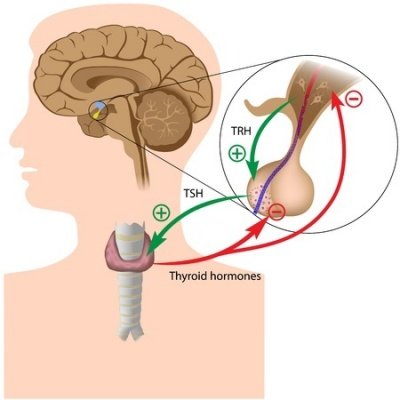Shortly after I had my first baby, I began experiencing some health issues. I discuss my struggle to finding a diagnosis in a previous post.
As a “newish” mom, fighting to receive this diagnosis (or any diagnosis) really hit me hard. My concerns about lack of energy were passed off as being lazy. Having an inability to remember anything or speak intelligently was dismissed as mommy brain. I heard, often, “you’ll get it back soon enough.”
Nearly 2 years went by and I wasn’t getting better. Not only did I still have difficulty thinking clearly, I was constantly stumbling on my words.
So, I fought with my doctor to continue testing because I just wasn’t right! No matter the ridicule or dismissive comments, I knew something was wrong. Finally, I was diagnosed with hypothyroidism.
This diagnosis was just the first part of my story. It laid the path for finally getting treatment and gaining some understanding from those who dismissed my complaints.
I want to share what I learned in hopes that I help another struggling mother. But, I want to do so from the beginning and start with the basics.

What is hypothyroidism?
Hypothyroidism is just one type of thyroid disorder. According to the American Thyroid Association, more than 12% of the U.S. population will develop a thyroid condition some time in their life. This means millions of people are affected by hypothyroidism.
To make it easy to remember, having hypothyroidism means that your thyroid is under-active, or sluggish. In very personal terms, hypothyroidism is a silent player in slowly destroying your life. By not taking care of your thyroid, you allow it to impede on all sorts of hormones that will affect various parts of your life, including energy and sex drive.
Before I go into details about this thyroid disorder, I first want to discuss a little anatomy.
What is your thyroid?
Your thyroid is a butterfly-shaped endocrine gland found in your neck. It’s located under your larynx and in front of your trachea.
The two lobes of your thyroid are connected by an area called the isthmus.
Why is your thyroid important?
As with any endocrine gland, your thyroid is responsible for producing and secreting certain hormones to help your body function properly. Generally, you’ll hear about two main types of hormones, which I will refer to simply as T3 and T4.
Primarily, the thyroid hormones are responsible for your metabolism. However, they also play roles in mood regulation and sexual functions. Hello! Your thyroid is messing with your marriage!
Endocrineweb.com provides a nicer list of the thyroid’s functions here.
Does the thyroid work alone?
The hypothalamus and pituitary glands, located in the brain, control the thyroid. These two glands communicate, to the thyroid, how much T3 and T4 it needs to produce.
When the thyroid levels are low, these two glands tell the thyroid gland to increase output of these hormones.
So what happens when your thyroid does not produce enough thyroid hormones?
When your thyroid becomes sluggish, you’ll begin to notice signs and symptoms of hypothyroidism.
It is possible, however, to be in the initial stages of hypothyroidism before noticing any signs.
Can anything be done for hypothyroidism?
Thankfully, once hypothyroidism has been diagnosed, there are treatment options.
Your doctor will prescribe thyroid medications to replace the thyroid hormones that aren’t being produced.
Your options include synthetic thyroid hormone replaced or a desiccated thyroid replacement, made from the thyroid of animals (usually pig). I’ll try to discuss these further in the future.
How long will you have to take the medication?
This is a topic that should be discussed with your doctor.
There have been some reports of curing hypothyroidism. Generally, you should expect to be on thyroid hormone replacement for the rest of your life.
How old are people who develop hypothyroidism?
Hypothyroidism has no age limits.
According to Baby’s First Test, nearly 1 in every 3000 or 4000 babies is born with congenital hypothyroidism. Thankfully, this is routinely screened within the first few days of a baby’s life. Catching this condition early aides in preventing intellectual or developmental delays.
But, hypothyroidism can affect people of all ages.
Sadly, women are 5 to 8 times more likely than men to be diagnosed with hypothyroidism, according to the American Thyroid Association.
In summary, hypothyroidism means your thyroid gland is under-active, and is not producing the necessary hormones that mainly control your body’s metabolism, and some other bodily functions. Any age can be diagnosed with this condition. Fortunately, it can be treated and you can live a fairly normal life.
Final Note about Hypothyroidism
Please be sure you have your antibodies tested to find out if Hashimoto’s is the cause of your hypothyroidism! While standard treatment of hypothyroidism is through medication, knowing whether or not you have autoimmune hypothyroidism is useful. A good doctor will help you find healing beyond prescriptions.
Do you have hypothyroidism or Hashimoto’s? How has it affected you? What are some of your biggest struggles?


3 comments
Thanks for sharing the information about hypothyroidism.
Thankyou for sharing such a nice article and your knowledge with us.Hypothyroidism, also called underactive thyroid or low thyroid, is a disorder of the endocrine system in which the thyroid gland does not produce enough thyroid hormone. It can cause a number of symptoms, such as poor ability to tolerate cold, a feeling of tiredness, constipation, depression, and weight gain.
Thank you so much for sharing such a helpful thing and your experience with us.Hypothyroidism
Comments are closed.